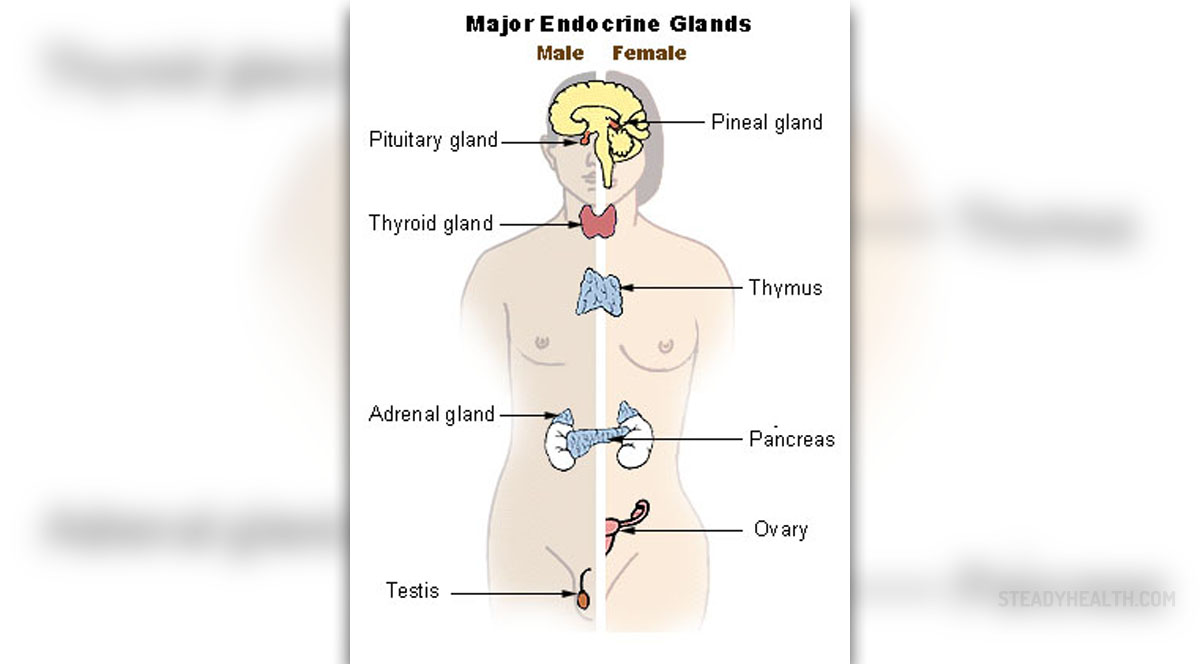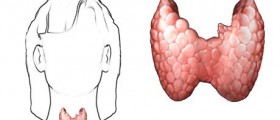
Endocrine disorders are those affecting endocrine glands in our body. Since the main function of endocrine glands is to produce various hormones, any of diseases of endocrine glands will have effects on the human organism. The endocrine system is located in different parts of the body (the brain, neck, kidneys, pancreas, testes, ovaries, etc.) and comprises glands such as the hypothalamus, pituitary gland, thyroid gland, adrenal glands...
There are several disorders of endocrine glands, but the most commonly diagnosed problems are diabetes (diabetes mellitus), acromegaly, Addison’s disease, Cushing’s syndrome, Graves’ disease, Hashimoto’s thyroiditis, hyperthyroidism, hypothyroidism and prolactinoma.
Diabetes Mellitus
Diabetes is a very common endocrine problem, occurring in people whose pancreas does not produce insulin (diabetes type 1) or whose body is unable to use insulin (diabetes type 2).
Diabetes symptoms are easily recognized and patients usually experience excessive thirst or hunger, frequent urination and fatigue as first signs of this condition. Besides these symptoms, some people may also experience nausea, vomiting as well as some weight issues (unexplained weight gain or weight loss) and some changes in vision.
Acromegaly
Overproduction of growth hormone by the pituitary gland is known as acromegaly. This condition affects the whole body, leading to overgrown or swollen hands and feet, abnormally large tongue, nose or lips and changed structure of the facial bones. Acromegaly may also alter the voice (deep voice) and cause fatigue, tiredness, headaches and aches in joints and the whole body. These patients frequently experience thickening of the skin, overgrowth of bone and cartilage, vision and sleep problems and some sexual dysfunction.
Addison’s Disease
Too little cortisol and aldosterone is known to lead to Addison’s disease. In most cases, this problem is related to damage to the adrenal glands and patients experience headache, fatigue, nausea and vomiting, loss of appetite, weakness, diarrhea, hypotension, hypoglycemia, craving for salt and unexplained weight loss. Certain people may also suffer from depression, while women may experience missed menstrual periods due to lack of cortisol and aldosterone.
Cushing’s Syndrome
Excess cortisol in the body may lead to Cushing’s syndrome, causing distinctive look of patients. Some signs of this endocrine disorder are buffalo hump, easy bruising, upper body obesity and “moon” face.
Thyroid Problems
Graves’ disease and Hashimoto’s thyroiditis are two types of hyperthyroidism, causing enlarged eyes, goiter, heart problems, skin changes, tremors, weight loss or gain, menstrual problems, fatigue, constipation or diarrhea, sleeping difficulties, mood changes…
Hypothyroidism is caused by too little thyroid hormones and this condition may also cause menstrual problems, intolerance to cold, constipation, goiter, fatigue, menstrual problems, different effects to the heart and weight gain.
Prolactinoma
Dysfunctional pituitary gland is responsible for production of hormone prolactin and effects such as missed menstrual periods, unexplained production of breast milk, infertility, libido problems and erectile dysfunction.
















Your thoughts on this
Loading...